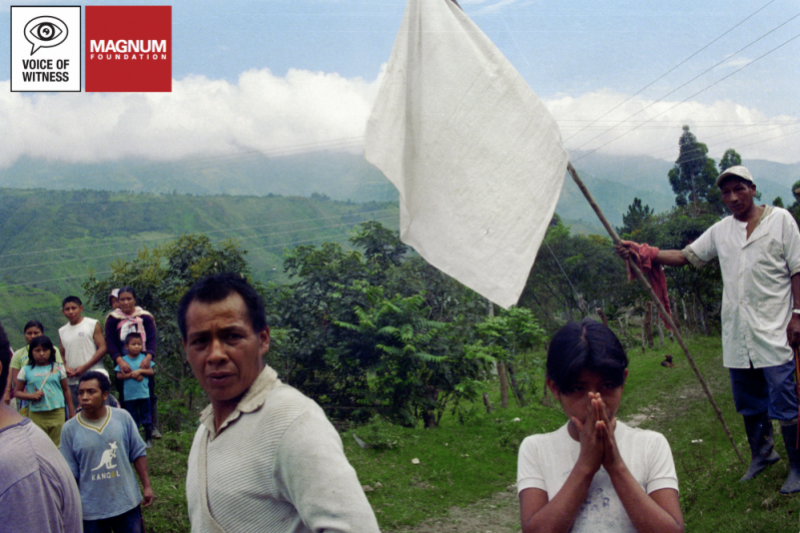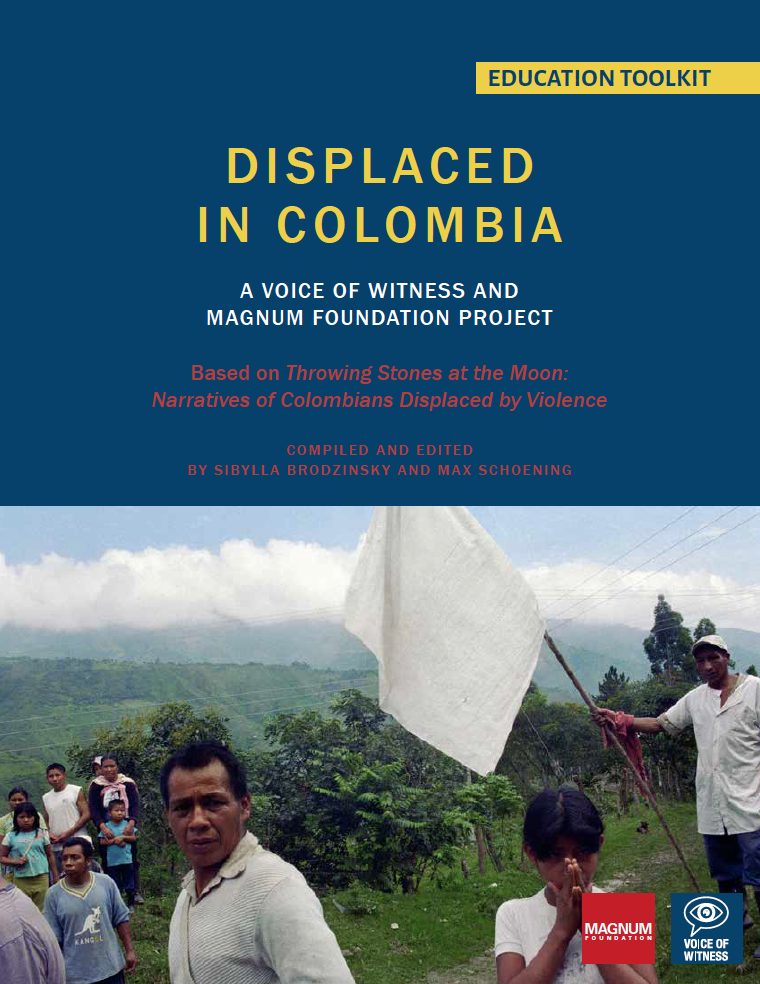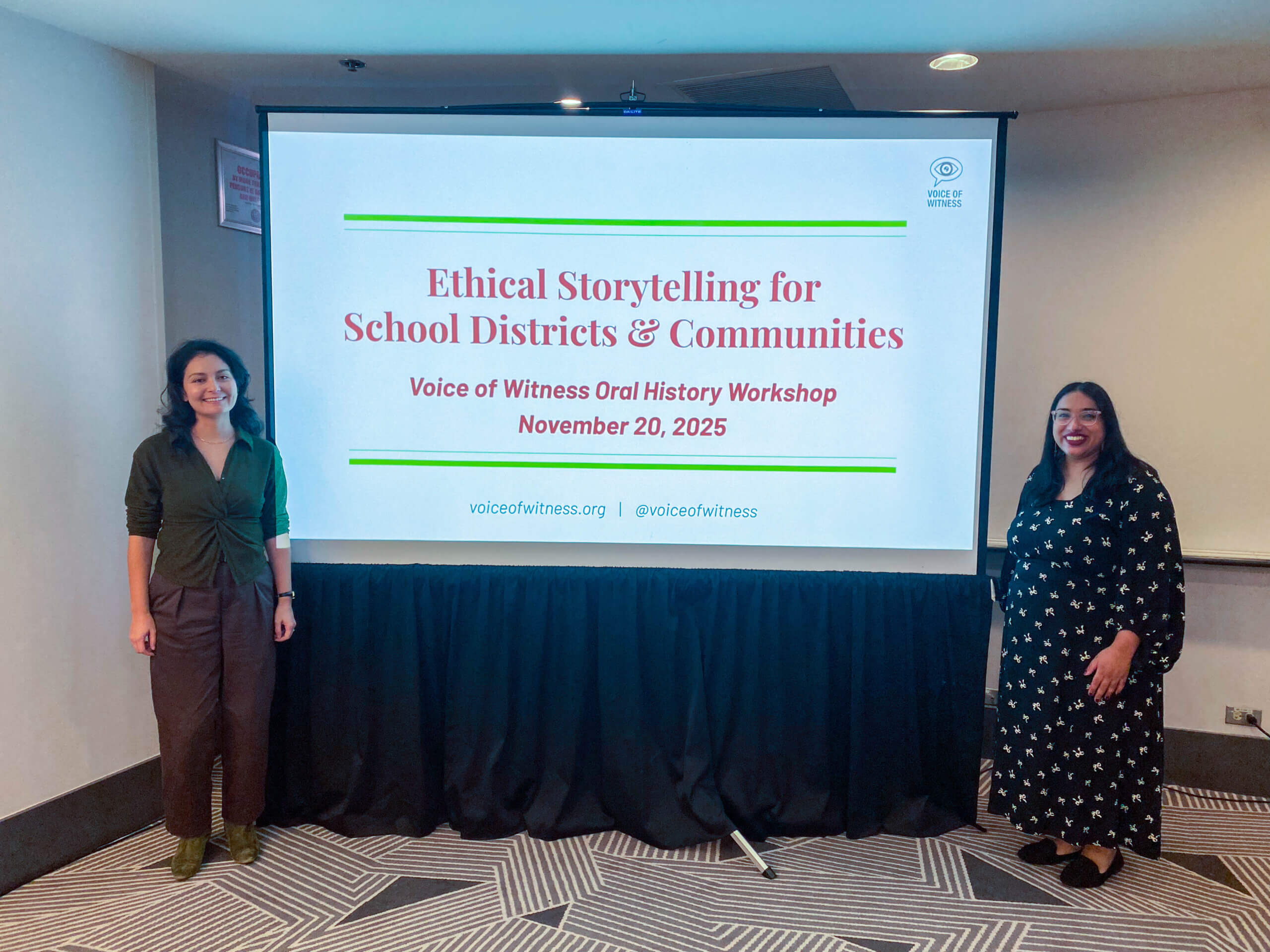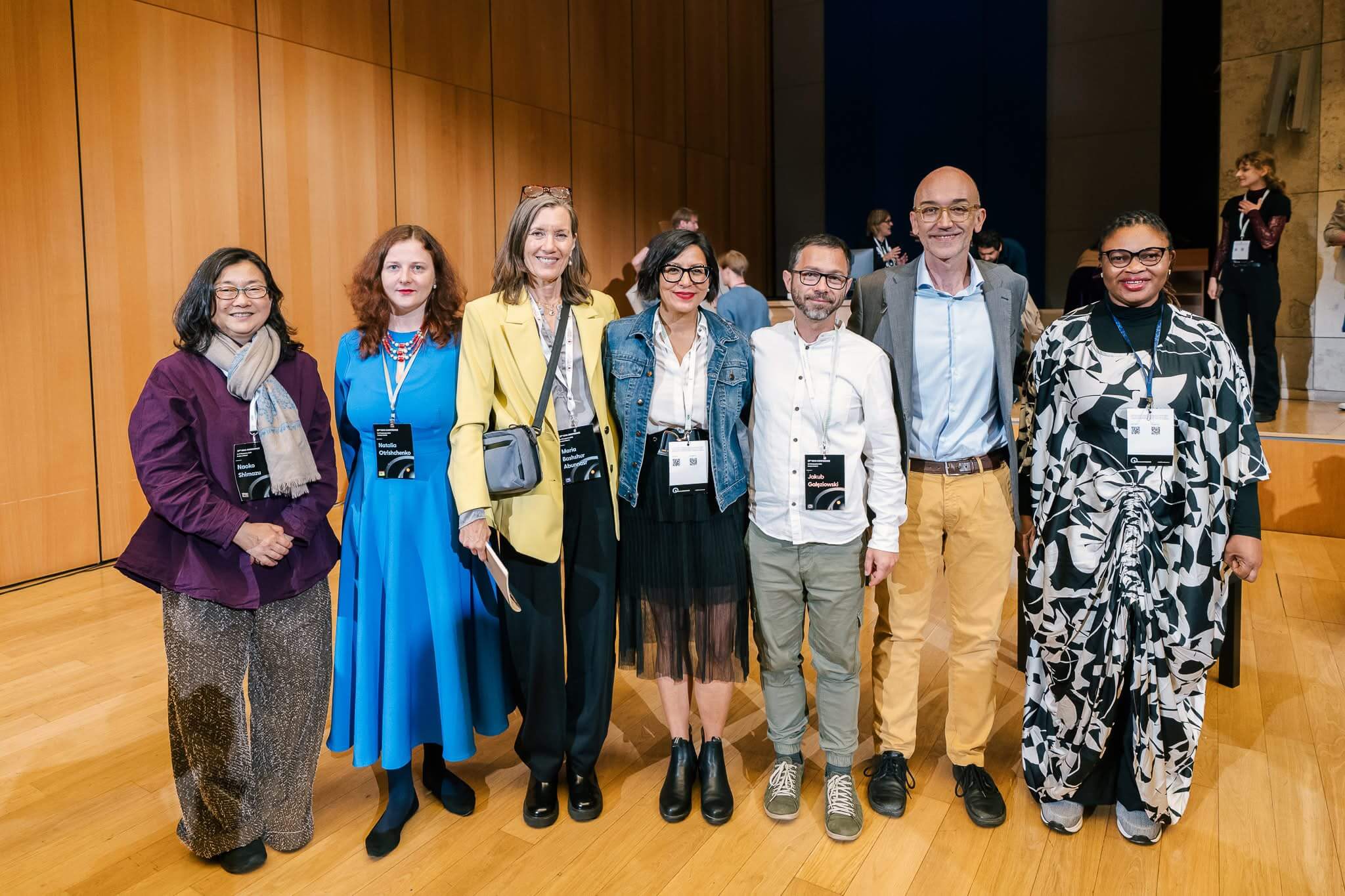 For over five decades, Colombia has been embroiled in internal armed conflict among guerrilla groups, paramilitary militias, and the country’s own military. Civilians in Colombia have faced a range of abuses from all sides, including killings, disappearances, and rape—and more than four million have been forced to flee their homes.
For over five decades, Colombia has been embroiled in internal armed conflict among guerrilla groups, paramilitary militias, and the country’s own military. Civilians in Colombia have faced a range of abuses from all sides, including killings, disappearances, and rape—and more than four million have been forced to flee their homes.
As the crisis for the citizens of Colombia continues following last Sunday’s public referendum, in which voters rejected a peace deal with FARC guerrillas, the Magnum Foundation and Voice of Witness (VOW) have launched a multimedia toolkit that sheds light on the conflicted histories Colombians were grappling with as they went to the polls. The toolkit aims to engage students with the human stories behind the headlines and provide a model for photographers and journalists looking to explore interdisciplinary approaches to human rights reporting.
The project, titled Displaced in Colombia, brings together oral history, documentary photography, and an audio narrative to tell contemporary first-person stories of people impacted by the decades-long violence in Colombia.
 Accompanying the multimedia content is an educators’ toolkit that provides teachers with lesson plans and a variety of resources for teaching not only about the conflict in Colombia, but also about the broader issues of displacement, migration, and government policy. The toolkit draws from oral histories included in VOW’s book Throwing Stones at the Moon: Narratives from Colombians Displaced by Violence edited by Sibylla Brodzinsky and Max Schoening, and includes photographs by Magnum photographers on the ground in Colombia.
Accompanying the multimedia content is an educators’ toolkit that provides teachers with lesson plans and a variety of resources for teaching not only about the conflict in Colombia, but also about the broader issues of displacement, migration, and government policy. The toolkit draws from oral histories included in VOW’s book Throwing Stones at the Moon: Narratives from Colombians Displaced by Violence edited by Sibylla Brodzinsky and Max Schoening, and includes photographs by Magnum photographers on the ground in Colombia.
VOW Education Program Director Cliff Mayotte says, “We see this as an opportunity for students to engage with the issues of displacement and state violence by listening to the stories of people directly impacted by them and responding in creative ways.”
Given the Magnum Foundation’s expertise in documentary photography and VOW’s 10+ years of publishing written oral histories, the collaboration between these two non-profit organizations seemed like a perfect fit. Both organizations have worked extensively on documenting human rights issues and share a commitment to creating in-depth, nuanced content with the capacity to spark social change.
“Following this week’s referendum, providing such personal narratives to the current discourse is especially valuable,” says Emma Raynes, Magnum Foundation’s Director of Programs. “Through the combination of seeing and listening, we hope that Displaced in Colombia will add an important layer to this complex ongoing conflict and its representation in mainstream media.”




